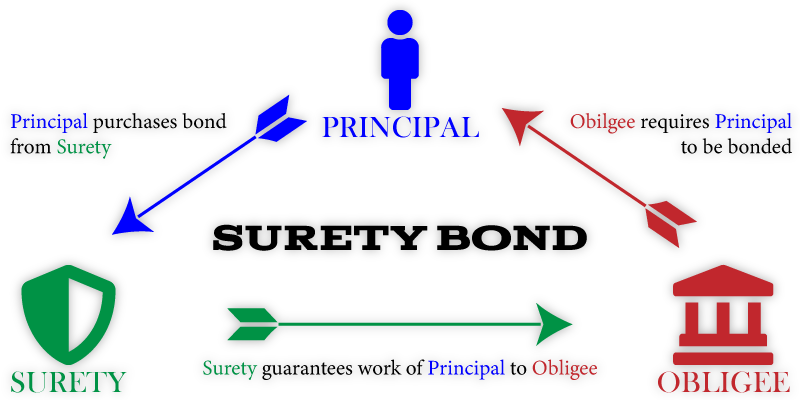The Role of Bid Bonds in Competitive Bidding Procedures
Bid bonds contribute in maintaining the integrity and efficiency of affordable bidding process processes within the building and public procurement industries. By providing an economic guarantee that bidders will certainly fulfill their legal obligations if selected, proposal bonds act as an important tool in alleviating the dangers connected with non-performance. This system not only strains non-serious prospective buyers yet additionally establishes an equal opportunity, guaranteeing that only solvent and professional contractors are taken into consideration. Understanding how proposal bonds operate and their effects for both task proprietors and prospective buyers is necessary for valuing their complete effect on the bidding process landscape.
What Are Bid Bonds?
A bid bond is a kind of surety bond that serves as a financial assurance between a job proprietor and a bidder. It makes certain that the prospective buyer will certainly become part of the agreement at the bid rate and provide the necessary efficiency and repayment bonds if granted the agreement. Proposal bonds are typically used in building and construction jobs, where they offer to prequalify professionals and assure the seriousness and monetary capability of the bidding entity.
At its core, a bid bond supplies protection to the job proprietor by mitigating dangers associated with the bidding process. If a bidder, after winning the agreement, fails to commence the task as per the proposal terms, the task owner can assert compensation approximately the bond's worth. This offsetting mechanism covers the extra prices sustained by the proprietor to award the agreement to the next most affordable bidder or to reinitiate the bidding procedure.
Essentially, quote bonds promote a degree playing field in affordable bidding process environments, ensuring that only economically stable and major prospective buyers participate. They additionally contribute to the overall integrity and efficiency of the procurement procedure, providing a layer of security and trust fund in between project proprietors and service providers.
How Bid Bonds Work
Comprehending the technicians of proposal bonds is important for stakeholders in the building and construction industry. A bid bond is a kind of surety bond released by a guaranty business, making certain that the bidder will recognize the terms of their quote if granted the contract. It acts as an economic assurance to the task owner that the bidder has the monetary capacity and intent to embark on the job at the recommended bid rate.
To procure a proposal bond, a contractor must put on a guaranty business, giving financial statements, credit rating, and information about the task. The guaranty firm then evaluates the threat connected with releasing the bond. Upon authorization, the surety problems the bond to the contractor, who sends it in addition to their quote proposal.

Benefits for Project Proprietors
Supplying considerable benefits, bid bonds offer substantial benefits for task owners in affordable bidding procedures. Largely, they function as a monetary assurance that the selected contractor will participate in the contract at the quote price and equip the called for efficiency and settlement bonds. This assurance mitigates the threat of the picked prospective buyer backing out, hence protecting against hold-ups and added costs coming from re-tendering the job.

Furthermore, quote bonds promote fairness and transparency within the affordable bidding process landscape. By demanding a bond from all bidders, task owners can keep a fair having fun field, discouraging pointless quotes and cultivating an expert bidding environment. This inevitably leads to the choice of the most skilled and economically sound professional, maximizing the task's end result and guarding the owner's investment.
Needs for Bidders
To take part in affordable bidding procedures, bidders have to satisfy several strict needs created to ensure their ability and reliability. To start with, bidders are generally needed to give a bid bond, which serves as an economic warranty that the prospective buyer will become part of a contract if granted the job and subsequently equip the required efficiency and repayment bonds. This proposal bond comforts task proprietors that her response the prospective buyer has a severe commitment to the job.
Additionally, prospective buyers have to demonstrate their economic stability and capacity to embark on the project. This often includes submitting audited financial declarations, financial recommendations, and credit scores ratings. Such paperwork assists job proprietors analyze the prospective buyer's capacity to fund the job and take care of prospective monetary strains.
Experience and technological knowledge are also critical. Prospective buyers need to provide proof of past projects of comparable range and complexity, commonly through detailed job profiles and customer referrals. This showcases their expertise and integrity in providing premium work.
Typical Mistaken Beliefs
One widespread mistaken belief is that quote bonds guarantee the contractor will win the job. In reality, a bid bond merely guarantees that the contractor, if selected, will get in right into the contract and give the called for performance and settlement bonds.
One more common misunderstanding is the belief that bid bonds are unnecessary for tiny or simple tasks. Despite task dimension, proposal bonds serve as a safety procedure for project owners, making sure economically stable and serious bids. Avoiding this step can threaten the integrity of the bidding process and may disqualify a contractor from factor to consider.
Finally, some specialists presume that quote bonds are a monetary worry due to their expense (Bid Bonds). However, the expense of a quote bond is usually a little percentage of the quote amount and is a beneficial investment for the possibility to secure a project. This small cost must be considered as an essential facet of conducting organization, not an avoidable see post expense. Comprehending these subtleties is crucial for specialists to navigate the affordable bidding process landscape effectively.
Conclusion
These bonds safeguard task owners by reducing the threat of pointless bids and boosting the transparency and justness of the bidding process. By enforcing certain demands on bidders, bid bonds add to much better project results and boosted confidence in the option process.
A quote bond is a kind of guaranty bond that acts as an economic assurance in between a task proprietor and a prospective buyer. A bid bond is a type of guaranty bond provided by a guaranty company, ensuring that the prospective buyer will recognize the terms of their quote if awarded the contract.If the contractor is granted the contract but stops working to get in right into the contract or give the needed performance and payment bonds, the task proprietor can assert the quote bond. Bidders are normally needed to provide a proposal bond, which serves as a monetary guarantee that the prospective buyer will get in into an agreement if awarded the job and ultimately provide the required performance and repayment bonds. Regardless of job dimension, proposal bonds serve as a safety procedure for task proprietors, making sure financially secure and serious original site bids.